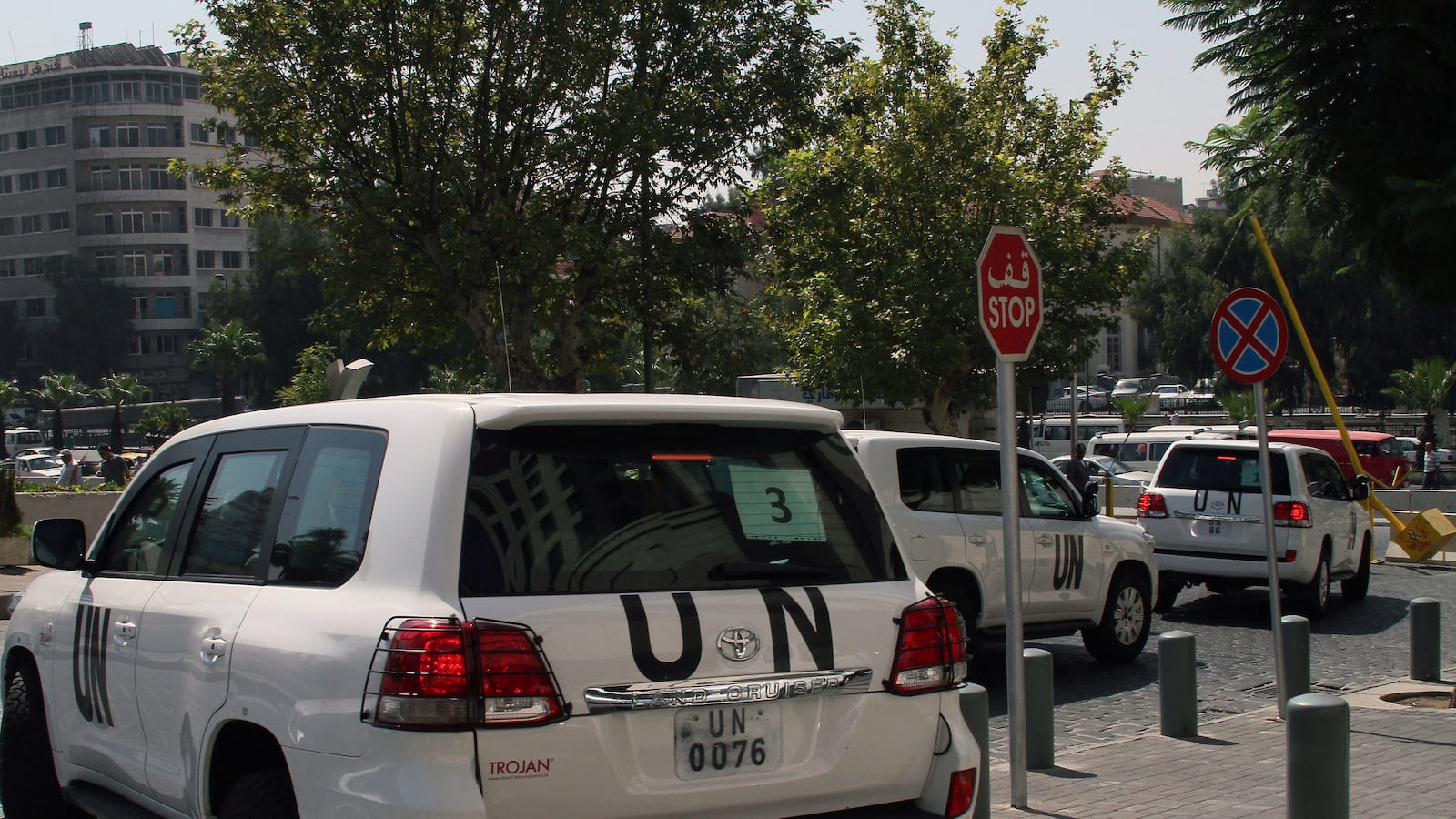One year ago, Bashar al-Assad was a pariah in the international community. A political solution to the Syrian crisis that included his government seemed inconceivable, at least to the Western world. Nor could one imagine any international body or head of government sparing a positive word for him and his regime—except for the leaders of Russia and Iran.
Recently, however, Assad has been publicly praised by no less than John Kerry. The UN's Organisation for the Prohibition of Chemical Weapons (OPCW), has had some kind words for him as well. And now it seems that the U.S. has joined Russia in pressuring the rebels to participate in future talks, in which the balance of power will likely be skewed in favor of the regime (although The Hague has recently ruled out a participatory role for Assad himself.)

In short, Assad's international standing has improved. And the sad truth is he has reached this point not despite his having used chemical weapons against the Syrian people, but precisely because he did use them.
One could argue that if the U.S. and their allies were now softer on the Syrian regime, this was a result of their having realized that cracking that nut was proving more difficult than expected. Indeed it has been noted that the Syrian army's recent battlefield gains have played a significant role in boosting Assad's diplomatic position.
But as others have pointed out, it is primarily through its indiscriminate use of sarin gas that the Assad regime has regained part of the international status it lost in 2012. Now that Assad has agreed to cooperate with the OPCW in dismantling his own chemical arsenal, he once again “appears as a legitimate representative of Syria in an international setting,” as Oliver Thränert, a German political analyst, noted.
By using poison gas against his own people, Bashar al-Assad has achieved two goals. First, he has humiliated the United Sates and Europe. He proved that Obama's “red line” policy was meaningless and that Western nations were unable—or unwilling—to intervene in the conflict. This, incidentally, strengthened the regime's feeling of impunity. It also enhanced the perception among the rebels and their supporters—e.g., Turkey, Saudi Arabia and Qatar—that the West had no intention of siding with them.
The second goal Assad achieved was to become, once again, a primary interlocutor for the international community that has sought to isolate him. Since he agreed to dismantle his chemical arsenal under the supervision of the OPCW, his regime has become by default the UN's contact for the undertaking. Moreover, he can now present himself as a reliable partner, “willing to cooperate,” to paraphrase the words of OPCW head Ahmet Uzumcu.
Even in the UN General Assembly's human rights committee, the reputation of Assad's regime has improved slightly. Last Tuesday the UNGA's Third Committee, which focuses on human rights and represents 193 countries, voted to approve a resolution condemning the Syrian government's abuse of human rights. The largely symbolic document was approved by 123 member states, with 13 voting against and 46 abstaining. In 2012 a similar resolution, carrying few practical consequences, was approved by a wider margin, with 135 countries voting in favor, 12 against and 36 abstaining.
UN inspectors have confirmed that the August 21 Ghouta offensive was a chemical attack. Hundreds of Syrians, perhaps over a thousand (the number of casualties is still disputed), were murdered with sarin gas.
At first, some doubted the regime had actually used poison gas. Why, asked the doubters, would the Syrian regime resort to sarin gas, when it has already been very successful in killing people with conventional weapons? The death toll in Syria reached 100,000 before the Ghouta attack. So what would be the point of using sarin, when Obama had made it clear that doing so would mean crossing his red line?
Now it is clear that the Ghouta attack proved to be a very effective strategy.
From Assad's perspective, bombing Ghouta with sarin gas has been one of his smartest moves. This, of course, is a morally outrageous thing to say. But it might well reflect the logic behind Assad's recent actions.
From the beginning, these were the main two weakness of the U.S. administration's policy. When Obama set a “red line” at the use of chemical weapons in August 2012, he hinted that the U.S. would be willing to intervene if chemical weapons were used. Second, by saying that chemical weapons were a red line, the administration also implicitly said that everything else was not a red line, as the Brookings Institute's Shadi Hamid has noted in an article for The Atlantic.
Assad read both messages as a grant of impunity.
Threatening consequences that one is unwilling or unable to carry out is the most counterproductive tool of enforcement, as any parent knows. If you tell your children they will be punished for stealing candies and then don't make good on the threat, they'll just go ahead and steal more candies.
That's what happened with Assad. First he realized that Obama was bluffing and then he made sure everyone else realized the same thing—i.e., there was no real “red line” regarding the use of chemical weapons. Then he carried on with the charade by publicly renouncing his chemical program. And suddenly he had a very convenient bargaining tool, something he could give up without actually loosing much—since, as noted above, the regime carried out its most brutal massacres with conventional weapons. Finally, Assad was back in the diplomatic arena, strengthened by his beau geste.
Bashar al-Assad is probably the first head of state to have improved his international status by gassing his own people. This is something the international community will have to come to term with. Whether intentionally or not, the Obama administration has set a very dangerous precedent.






